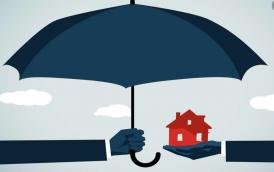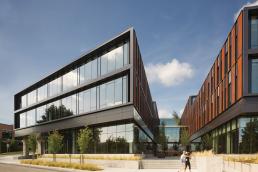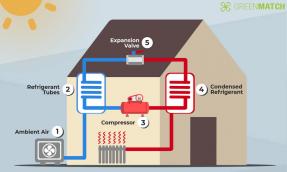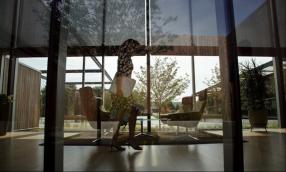
If you are looking to ‘Go Solar’ there are many great options available, but one option worth looking into is Community Solar. The term Community Solar refers to a community based solar project that is owned by residents, or people that are interested in investing in solar panels within the project. The main purpose of community solar is to allow people in a given community to own or have rights to solar panels without having to install panels on their own property. Community solar projects are also sometimes referred to as “solar farms” or “solar gardens”. People involved in projects benefit from the electricity that is generated by the community solar farm, which believe it or not, costs less than the price they would normally pay to utilities. By providing access to local, affordable, renewable sources of energy, community solar projects make it financially feasible for more people to go solar.
This expanded solar access helps everyone look forward toward a cleaner, more sustainable future. Community Solar provides homeowners with unconstraining physical attributes like roof or land space, to expand their ability to go solar without needing to install projects on land they own. Participants might be people with less land or roof space, but community solar also opens up possibilities for lower income families and neighborhoods.
Community Solar resources and tools are increasingly available, and supportive state policies and financial incentives are also growing in number. The Coalition for Community Solar Access (CCSA), a leading trade community solar association, vows to expand access to solar projects through clean, local affordable energy on a national level. The Community Power Network (CPN) is another resource which works with local, state, and national organizations to build and promote locally based renewable energy projects and policies. The Solar Energy Industry Association (SEIA) also provides information on Shared Renewables/community Solar. Including a map of shared renewable policies. GRID Alternatives, Vote Solar, and the Center for Social Inclusion recently launched The Low-Income Solar Policy Guide, a new online tool that looks at different policies and programs regarding solar projects, including community solar, to expand access to solar power and jobs across America. The Low-Income Solar Guide lists current policies in place like the California’s Single-Family Affordable Solar Homes (SASH) and Multifamily Affordable Solar Housing (MASH) Programs, the Colorado’s Community Solar Gardens Act, and the Massachusetts’ Green Communities Act of 2008 and Solar Loan Program.
From a personal perspective, my parents are looking into solar energy projects, but they have had a couple of setbacks. They are not sure if they want to go solar due to the fact that one has to sign a close to a twenty year lease agreement, unless they pay for the solar panels in full. This significant up front commitment makes this a difficult decision for my parents, as they are unsure whether or not they will be selling the house in the next twenty years. For example, If they choose to install solar panels on our roof and then put the house on the market in the next couple of years, then the buyer may or may not want panels, and depending on their preference, this could affect the value of the house. Community Solar makes it possible for people like my parents to outsource a solar project, still benefit from SREC credits on their electricity bills for their portion of their power produced, without having to modify the makeup of their home.
To learn more about Community Solar, visit
http://www.communitysolaraccess.org/
You can find the Low-Income Solar Guide at
To check out the Solar Energy Industry Association’s (SEIA) Shared Renewable/Community Solar map, visit:
http://www.sharedrenewables.org/community-energy-projects/
For a definition of SREC credits, see:
- Filed Under: Energy
- Keywords : Renewable Energy, Solar Energy
- ( 19304 ) views

Hi Everyone, My name is James Higgins. I will soon be a junior at Wheaton College, I am currently going for my bachelors degree where I am majoring in both Business and Economics with a minor in Computer Science. At Wheaton I am apart of the lacrosse team along with being actively involved in the Student Business Association and the Investment Club. Before Wheaton I grew up in Duxbury, Massachusetts, graduating from Duxbury High School in 2014.
- ( 0 ) Ratings
- ( 6 ) Discussions
- ( 1 ) Group Posts
Reply/Leave a Comment (You must be logged in to leave a comment)
Connect with us!
Subscribe to our monthly newsletter:
 Greenbuild Report Out, 2025 Nov 12, 2025
Greenbuild Report Out, 2025 Nov 12, 2025






























Not a Member Yet? Register and Join the Community | Log in